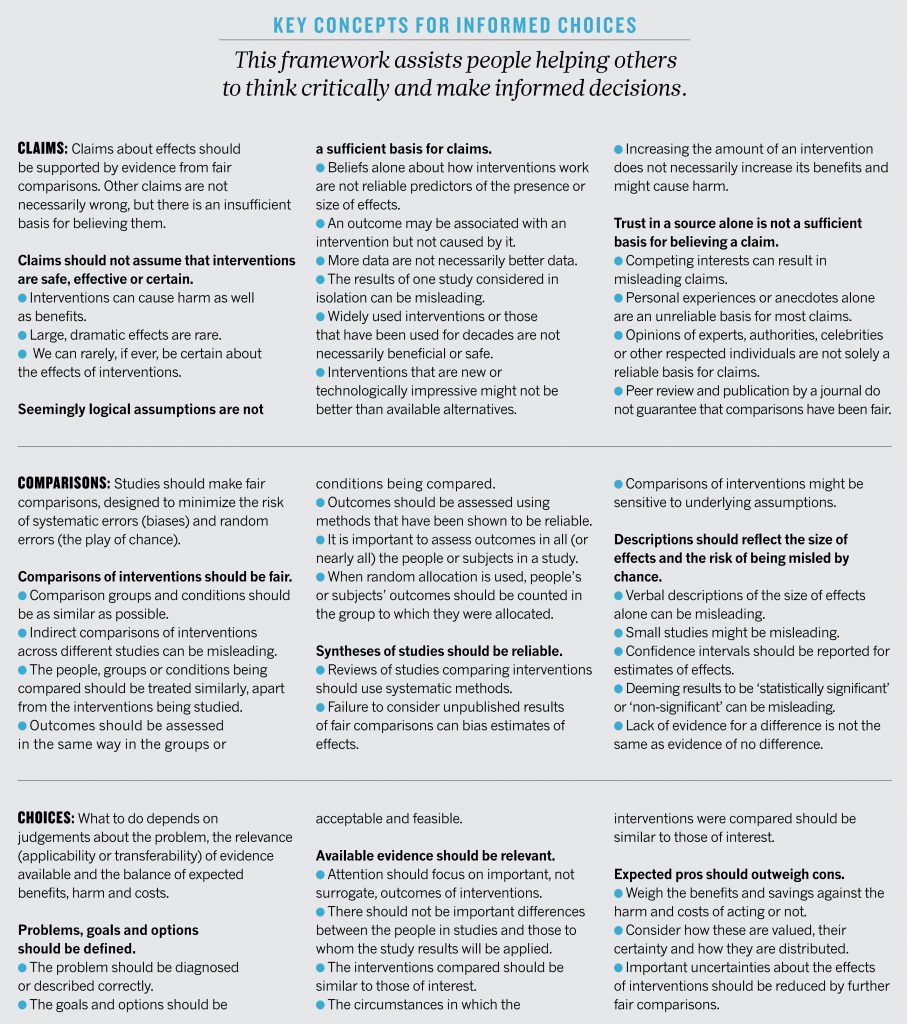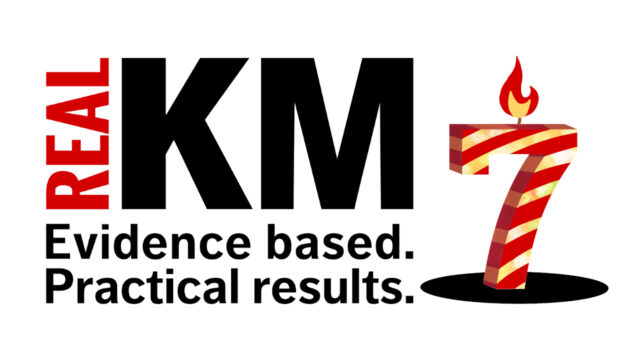
Key concepts for making informed choices
The world abounds with claims about what works and what doesn’t, but as we’ve documented in numerous RealKM Magazine articles, many people fail to critically assess these claims. This results in people holding and transferring knowledge that isn’t evidence-based, leading to individuals and organisations making poor decisions.
To help address this problem, an alliance of over 20 researchers from 14 different fields has published a framework of “key concepts for informed choices” in an article1 in the journal Nature. The researchers hope that professionals and scientists in all fields will make use of the concepts.
The concepts are shown in Figure 1, and further information can be found in the Nature article.

Header image: A protest against genetically modified organisms (GMOs) in Vancouver. Some community groups claim that GMOs have health and other negative impacts despite the evidence saying otherwise. Source: Adapted from Rosalee Yagihara on Flickr, CC BY 2.0.
Reference:
- Aronson, J.K. et al. (2019). Key concepts for making informed choices. Nature 572, 303-306. ↩
Also published on Medium.



![Collaborating on Research by National Eye Institute [Flickr image]](https://realkm.com/wp-content/uploads/2018/07/9955278615_c5356cdffd_z.jpg)


